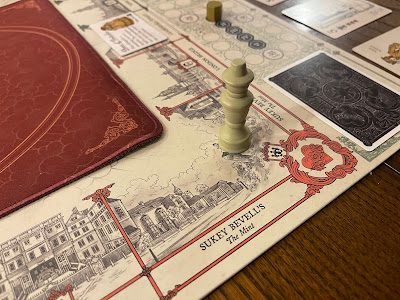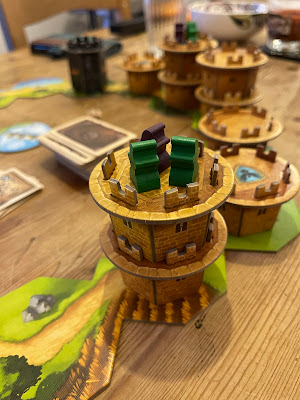Running table top games as a Game Master, or GM, is an incredibly rewarding experience. Guiding friends through a fantasy world, encouraging others to lose themselves in the experience, and working together to weave a narrative that is truly unique to the players, the game, and the situation. It can be a transformative, almost magical, experience when the vibes are just right, and leave you feeling almost as though you had actually lived through the adventure that unfolded.
But all of this emotional investment, planning, acting, and reacting can take its toll, not just on the players, but the GM as well. Yes, running a table top game is rewarding, but it can also be tiring and leave you feeling drained and emotionally spent.
GMs are always encouraged to help guide their players through the process of role play and before and after care that comes with that. Session zeros are a staple of any well-thought-out campaign to lay out the ground rules and safety information to players who may be required to imagine or act out some emotionally heavy situations. A wise GM will also check in with players where appropriate to make sure they have support in cases such as the death of a character or instances where the realm of fantasy strikes a little closer to home. In a collaborative, story-telling experience, there is always an element of uncertainty around where the road might lead you.
There are plenty of resources out there, from articles, to YouTube videos to help new and experienced GMs handle the needs of their players to ensure everyone gets the most out of their table top role playing experience. However, it feels as though there could be more support for the GMs themselves.
Here we have compiled a list of 5 things that a GM can do post-game to make sure they are looking after themselves and allowing necessary recovery time following every game.
1. Allow for post-game conversation
Knowing where and how to end a session is an art form that takes practice. Running a campaign you want to bring the session to a close in a way that leaves players desperate for more, and running a one-shot you want to leave everyone feeling like they have reached a satisfying narrative conclusion. However you choose to bring play to a close we recommend allowing time at the end for you and your players to talk through the events of the game, share in reliving the dramatic moments, and even some post-game analysis.
Allowing for this time provides everyone, even the GM, with a mental cool-down, like stretching after exercise. This may mean ending a session a little earlier so that players with other responsibilities aren't having to leave as soon as the final dice are rolled. Allowing everyone to take a breath and ease out of the characters they have just spent the last few hours playing will help shift your brain back to a more relaxed state. Conversation may wonder from the game itself, and this is absolutely fine. The important thing is allowing everyone time to digest the emotional meal they have just had.
2. Seek reassurance, and then actually listen
Running players through a game, especially one that you have put a lot of creativity into, can be an emotionally vulnerable experience. Regardless of how players reacted during the game, you might find yourself worrying about whether or not enjoyment was had equal to the effort you put in. There is absolutely nothing wrong with seeking reassurance from players at the end. A simple "Did everyone enjoy that?" can sooth any nerves that remain.
The difficult part, however, is knowing how to actually listen to the feedback. Realistically speaking, provided you put the effort in and have a well functioning group of players, there will most likely be positive feedback. When this is given it can be easy to filter out the positive, especially if you have any worries or if you are prone to self-criticism. Make sure you actually listen to what your players say and take their response as what they actually mean. if they say they enjoyed it, take them at their word. Their enjoyment is without a doubt largely thanks to the work you put in.
In the unlikely event that a player comes back with criticism, don't take it to heart. They are sharing because they feel comfortable in speaking to you about something that may help them enjoy the experience more in future sessions.
3. Make notes, but not too many
Without a doubt a session that is part of a longer campaign will have thrown up questions that will need answers by next time. Perhaps there's a new, unplanned direction your players went off in, or they may have angered a hitherto unimportant NPC that could now be plotting revenge. The best time to make note of these is when they're still fresh in your head after the session is over. Get those thoughts down into whatever planning document you're using and then close up your notebook or laptop. Don't get too far into planning ahead, you've just spent many hours "on", it's time to turn off for a bit. Once you've made a note of the really important reminders, draw a line under it and allow yourself time to rest.
If you feel it would be helpful, set yourself some time in the following few days to really review your notes and start making those plans for the next exciting installment.
4. Turn off and reset
A session spanning a few hours can really take it out of you, especially if things go slightly off the rails (which, let's face it, is most of the time). By the time you're done, even though your players may be chomping at the bit for more, you will no doubt need to rest.
You've just done a lot of mental exercise and you need to catch your breath. Try to do something that will help you move on from the game and relax. This might be reading or watching TV, or even better going outside for a bit. Make yourself a cup of tea and just allow yourself some time to take your mind off things for a bit.
5. Don't dwell on what could have been
Especially after a dramatic session, possibly in which a beloved non-player character, or even a player character, died, it is easy to worry about the decisions you made as a GM. Or perhaps these decisions were regarding the rules of the game or whether or not to allow a player to do something that bent the rules almost to breaking point.
The death of a character can feel cruel or unfair, especially if you know the player had grand plans for their narrative arch. In the first instance you should always check in with the player to make sure they are OK and understand that the ruling was not personal. Afterwards, you should remind yourself that this danger is what players sign up for and there is no reward without the risk.
If you are worried that a rules decision may have been the wrong call, remind yourself that nothing to so rigid that it cannot be changed. If you decide you would like to change a ruling later on, or make it clear that a specific ruling does not set precedent, make sure to allow time at the start of the following session to discuss it with your players. They are reasonable people and will understand if you explain your reasoning.
Once that decision is made, don't dwell on it. No matter how experience you are as a GM you will still be learning. Allow yourself the same grace you would allow a new player.
BONUS: Comparison is the thief of joy
Thanks to social media and online content we live in an age where we are almost constantly encouraged to compare ourselves to other people. You might have a favourite D&D actual play you like to watch, or follow some professional GMs online. Remind yourself that what you are often viewing is a carefully edited version of real events, or perhaps the players are all professional comedians. However it is, comparing your own games to those you see online will only strip the joy from the whole experience.
Your game is entirely unique to you and your players and that should be celebrated, not compared with others.
Are there any rituals or tips you could share that are helpful to a GM in looking after themselves? We'd love to hear what you do following a session to calm down. Leave a comment below!








.jpg)







.jpg)